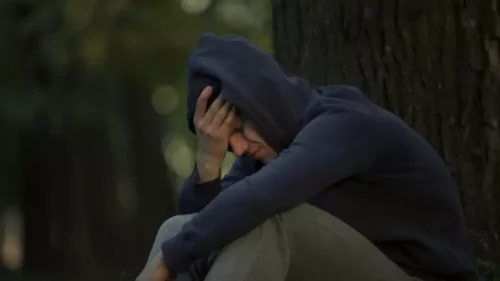
This exemplifies how sharing recovery stories can be very useful in marketing rehab centers and treatment programs. Life lessons from stories include learning about yourself, developing coping skills, and making a support group. That can change their views, behavior, and reaction to addiction and recovery. You can even use stories as a marketing tool for rehab centers and treatment programs. It encourages and motivates others in recovery, and it helps your own healing.
How to Help a Loved One With Addiction

If this has been the case for you, then you will need to remember it when telling your story. Much as the first stretch of your story included the tale of your first encounter with drugs and alcohol, this stretch will include your sobriety date. You may even want to give your sobriety date when you very first begin telling your story, then recall it again when you get to it.
- This encourages others in the same situation, and helps reduce the stigma of addiction and mental health.
- Their common bond—the struggles that led them to embark on the path to recovery—leads to mutual support.
- Sharing your story helps to educate people about the truth and realities of addiction.
- If you are in recovery from a substance use disorder, sharing your story with others is beneficial not only to you but also to your listeners.
- Sharing your addiction recovery story with other Austin sober living residents is a powerful way to support and encourage others while also maintaining accountability in recovery.
- Your story has the power to change lives and make a real difference in the fight against addiction.
Was this helpful?

Decide what aspects of your story you may want to avoid or be cautious about discussing, and what you sharing your story in recovery feel comfortable sharing. Getting clarity about this first will set the stage for an emotionally safe process. As we introduce each concept, we’ll write the story of “Ronald,” a past client who is never afraid to share his story with an audience. No matter when you decide to seek recovery, your voice can inspire others who might decide to claw their way back to the top.
- Storytelling is a big part of healing for those dealing with addiction.
- These personal stories aren’t just words; they’re a way for you and others to connect on a deeper level, offering hope and understanding.
- Sharing personal recovery stories holds incredible power to inspire and motivate others who are navigating their own journeys.
- If you’re speaking publicly, avoid directly associating yourself with Alcoholics Anonymous out of respect for the tradition of anonymity.
- We will credit it to you, either under your own name or anonymously.
Anxiety Programs

In essence, combining personal testimonials with uplifting insights https://ecosoberhouse.com/article/the-consequences-of-alcohol-symptoms-and-effects/ creates a nurturing environment that supports personal development and inspires those on their recovery journey. It creates a bond which captivates attention and encourages understanding. These stories can challenge bad views on addiction and mental health, eliminating stigma.
- Sharing these stories helps break the stigma around addiction and mental health.
- Sharing recovery stories can also break down societal stigmas around addiction and mental health.
- Such quotes can serve as motivational tools, reinforcing resilience and prompting positive reflections among listeners.
- By recounting past struggles, challenges, and triumphs, individuals are reminded of what they have overcome and how much they have grown.
- Telling your story in AA, at a rehab center, or for a public event may sound like something you never want to do.
This connection with personal values can reignite motivation, prompting individuals to pursue their own recovery goals vigorously. As these narratives circulate, they not only aid the individual’s healing process but also promote awareness and advocacy. This ultimately creates a supportive environment where others may feel empowered to embark on or continue their own recovery journey. Moreover, sharing coping strategies, such as leaning on a support network or practicing mindfulness, can empower individuals in recovery to take proactive steps in their lives.
The Power Of Storytelling In Addiction Recovery How Sharing Your Story Can Help With Healing

The NAMI Sharing Your Story with Law Enforcement presentation program trains peers and families to share their stories during law enforcement trainings. The information on this site is for informational and educational purposes only. Our website is not intended to be a substitute for professional medical advice, diagnosis, or treatment. The Happier marijuana addiction Therapy editorial team is made up of Masters and PhD counselling psychologists. Each worksheet is created by a team member with exposure to and experience in the subject matter.
One of the most powerful things about sharing recovery stories is the hope it can give others who are struggling. When someone hears that another person has faced the same challenges and come out the other side, it can be extremely motivating. Before starting this exercise, please think of an imaginary audience that you would like to share your story with, an audience that you would like to give some hope and encouragement to. Are they peers – people experiencing similar problems as yours – or perhaps their friends, parents, partners? Or perhaps you would like to aim your story towards teachers, social workers or other professionals that could benefit from hearing your lived experience to bring more awareness to their work?
